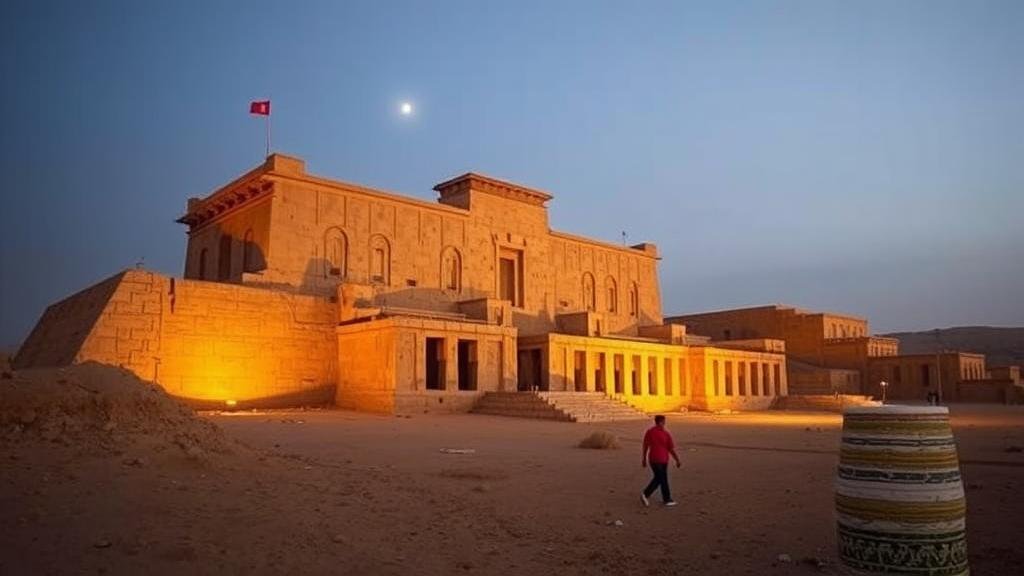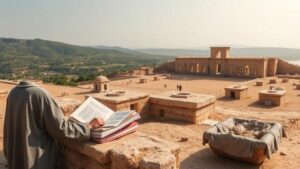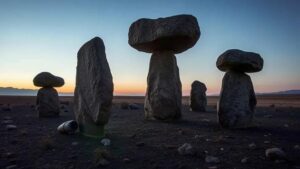Searching for the ancient city of Avaris, the lost capital of the Hyksos in Egypt.
The Quest for Avaris: Uncovering the Lost Capital of the Hyksos
The ancient city of Avaris, nestled in the northeastern Nile Delta, holds a significant place in Egyptian history as the capital of the Hyksos, a foreign Semitic dynasty that ruled Egypt during the Second Intermediate Period, roughly between 1650 and 1550 BCE. This article explores the archaeological findings, historical context, and the ongoing search for the remnants of this intriguing city.
Historical Context of Avaris
Avaris was a vital urban center for the Hyksos, who were originally pastoralists and traders. The name Hyksos translates to “foreign rulers,†and their arrival in Egypt marked a shift in power from the native Egyptian dynasties. Hyksos utilized Avaris as a strategic base for trade and military operations, which included the introduction of new technologies, such as the horse-drawn chariot.
Archaeological Discoveries
Archaeological research at the site of modern-day Tell el-Daba, believed to be Avaris, began in earnest in the 1960s, led by a team of Egyptian and foreign archaeologists. Notably, the excavations uncovered several key features:
- Residential Districts: The discovery of mudbrick houses and intricate wall paintings indicated a sophisticated settlement.
- Palatial Structures: A large palatial complex was identified, suggesting the presence of a ruling elite.
- Religious Artifacts: Numerous temples dedicated to deities like Seth, the god associated with desert storms and chaos, highlighted the citys religious practices.
- Trade Goods: Artifacts from various cultures, including Canaanite pottery and Middle Bronze Age items, illustrate Avariss role as a trade hub.
The Role of Avaris in the Hyksos Reign
Avaris served as the political and economic heart of the Hyksos dynasty during their rule in Egypt. The city was not just a military stronghold; it also facilitated agricultural and trade innovations. Hyksos introduced new crops and irrigation methods, boosting local agriculture. As evidence, excavations have revealed large granaries that suggest Avaris was a center for grain storage and distribution.
The Fall of Avaris
The decline of Avaris began in the mid-16th century BCE when native Egyptian rulers, led by Ahmose I, initiated a series of campaigns to reclaim their land. The liberation culminated in the capture and destruction of Avaris around 1550 BCE, effectively ending Hyksos dominance in Egypt. Historical records, such as the writings of Manetho, detail this period as one of strife and conflict, echoing the archaeological evidence of warfare.
Modern-Day Research and Significance
Today, the search for Avaris continues as archaeologists utilize advanced technologies such as ground-penetrating radar (GPR) and satellite imagery to uncover the city’s untouched layers. Each new finding adds to our understanding of the Hyksos era, providing insights into cultural exchanges between Egypt and neighboring regions.
Real-World Applications and Lessons Learned
The study of Avaris influences contemporary archaeological methods and intercultural studies. Understanding the dynamics of the Hyksos can offer parallels to modern interactions between different cultures. Also, this ongoing research emphasizes the importance of preserving historical sites and integrating technology with traditional excavation techniques.
Conclusion: The Continuing Legacy of Avaris
The ancient city of Avaris is more than just an archaeological site; it is a crucial element of Egyptian history that symbolizes the complexity of cultural interactions. As explorers and scholars persist in their quest to uncover this lost city, the narrative of the Hyksos and their capital enriches our understanding of ancient civilizations and their legacies in the modern world.



